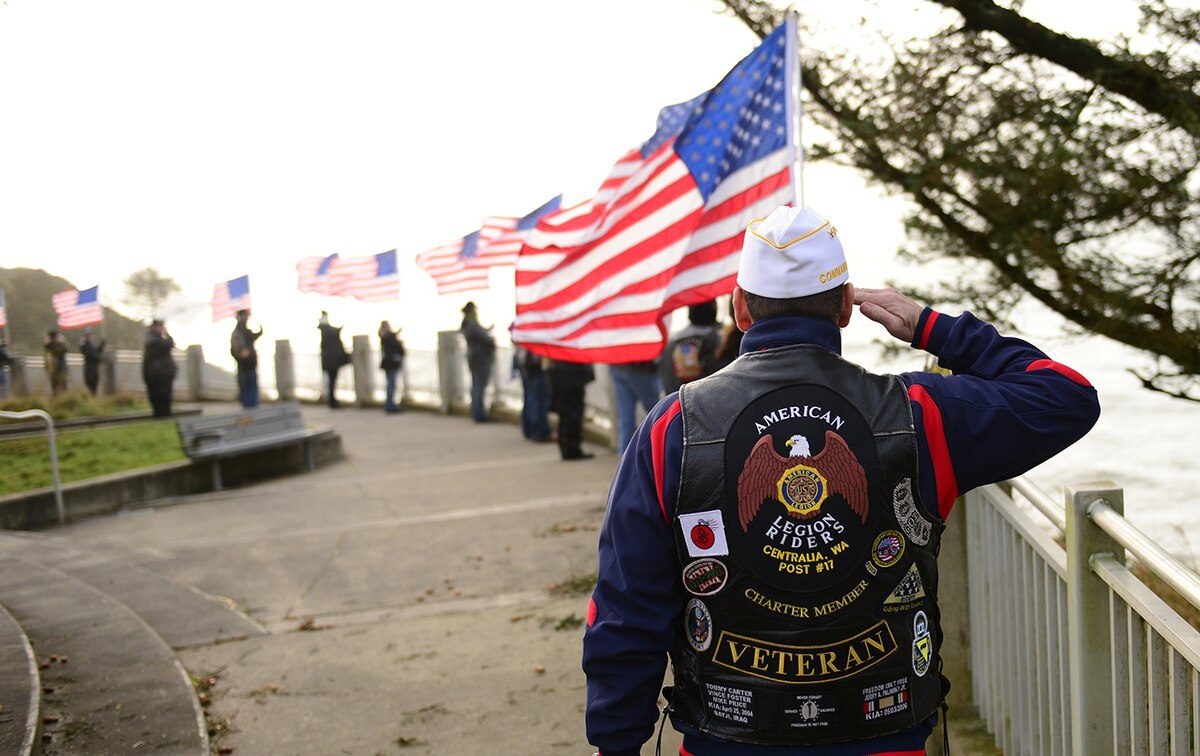The National Resource Directory (NRD) is a government resource for military members, veterans, dependents, and health care professionals. This website offers a collection of resources to help wounded warriors and those who care for them in a variety of areas.
Started in 2008, this effort is a partnership between several federal agencies, including the VA, the Department of Defense, and the Department of Labor. There are other partners, too; the Red Cross and a government agency coalition called Community of Care are just two working to support the NRD.
The Goal of the NRD is to be an information clearinghouse on a variety of important areas; with a great variety of services and support resources available (more than 16 thousand at the NRD at the time of this writing!) the National Resource Directory focuses on (but is not limited to) the following Resource Categories the NRD site offers information on:
- Military Adaptive Sports Program
- Benefits & Compensation
- Portfolio of Veterans Benefits (PVB)
- Health
- Family & Caregiver Support
- Choose Home
- Education & Training
- Homeless Assistance
- Other Services & Resources
- Housing
- Transportation & Travel
- Employment
How To Use The National Resource Directory
The NRD site is divided by category (see the bulleted list above). On the main page of NRD you can select one of these categories to be taken to a search page with a list of ways you can filter search results.
For example, clicking on the Health category takes you to a page with a sidebar that offers checkboxes to help you narrow down your search for Health resources based on whether you are a veteran, a family member, caregiver, active duty, etc. You can also select whether to search for a non-profit, a government agency, or an educational institution.
Checking the boxes for these options will add more search results. A search under Health with only the check box “health” selected gives you approximately 242 pages of resource links such as the link to the Hurlburt Field Behavioral Health agency, fact sheets for the National Child Traumatic Stress Network, other state and local health resources, etc.
A search with additional terms such as choosing both the Health checkbox and selecting search results for Government Agencies turns up fewer results (about 120 pages) but more specific ones.
Resources You Will Find At The National Resource Directory
Each of the resource categories linked to on the NRD official site has a list of subheadings you can choose from to get started. For example, under the resources heading, Benefits and Compensation, you will find the following additional topics:
- Survivor & Burial Benefits
- Defense Enrollment Eligibility Reporting System (DEERS)
- VA Benefits
- DoD Benefits
- Facility and Records Locator
- Life Insurance
- Social Security Benefits
- Filing Claims & Appeals
- States & Territories
- Unemployment Benefits
- Forms
Under the very first item in that list, the Defense Enrollment Eligibility Reporting System (DEERS) includes a page of related items such as a resource on how to get your Uniformed Services ID Card; this portion of the NRD site includes a link to DD Form 1172-2, an application form you need to download to apply for the card.
This is quite common-when a service member, veteran, or military family member might need to download a VA or DoD form, those forms are commonly made available via NRD.
Another resource listed under the DEERS category is a link to the TRICARE Defense Enrollment Eligibility Reporting System, which according to the official site, “Provides instructions to help active duty and retired Service Members verify and update their family’s information” in DEERS.
Of the many options under the resources section, the most useful to some will be the options found under the Filing Claims And Appeals heading, which returns eight pages or more of information (depending on how you search as a veteran, military member, as a caregiver, etc.).
This section includes VA paperwork such as VA Form 21-22, the Appointment of Veterans Service Organization as Claimant’s Representative form, but also links to lists of Veterans Service Organizations such as the DAV, Red Cross, VFW, etc. as well as listings for state-level Departments of Veterans Affairs or Divisions of Veterans Services.
The search returns for this site are filtered, but you may need to further refine a search or do more clicking through than you might expect. The resources found here are valuable, but they are not necessarily organized alphabetically, or displayed in terms of relevance. The search tool here is an excellent starting point for information gathering, but you may need to do a bit of extra work to group links to what you seek to organize them properly.
NRD Partnerships and Communities
The NRD official site includes a list of community resources from the agencies it has partnered with including:
- The American Red Cross
- Portfolio of Veterans Benefits
- Choose Home
- Community of Care
Each of these communities is linked to at NRD, with search results for helpful resources associated with each agency, some that may be peripherally linked to the VA or one another, or stand-alone, depending on the nature of the resource.
American Red Cross
The NRD official site describes the American Red Cross as “a humanitarian organization that provides emergency and non-emergency services, disaster relief, and disaster preparedness education in the United States to individuals, families, and military Service members.”
The Red Cross specifically helps service members and their families through emergency relief, personal loans for family crisis issues, location of service members in times of a family emergency, etc.
Portfolio of Veterans Benefits
The Department of Veteran Affairs’ Portfolio of Veteran Benefits offers “programs of care, compensation and commemoration for the Service member and Veteran communities and their families” to include education, career services, health counseling and care, etc.
Choose Home
This is described as “a new initiative designed to allow Veterans to remain in their homes over institutional care” and focuses on both research and interaction with military family members.
Community Of Care
Community of Care is a group of government agencies that collaborate on health care and other services that are “approved by Department of Defense and Veterans Affairs” according to the official site.
How To Contribute Resources To The National Resource Directory
You can contribute resources for review to the NRD online via the site’s Submit a Resource page; that link allows you to submit a URL, title, and description for your suggested resource. The ability to submit is not restricted to “official” channels.
An agency, non-profit, or individual may suggest new resources for review. You can also submit an update for an existing resource listed on the site. Submissions should include the appropriate audience, plus any relevant existing subject topics (there is a list provided on the electronic submission form).
General Guidance On Suggested NRD Resources
NRD.gov offers resource links to local, state, federal, and tribal government entities, services, and programs to include public/private partnerships between government and private sector operations.
Non-government resources must meet NRD criteria in order to be linked to on NRD.gov. These requirements include being accessible and relevant to military members, veterans, families, and care providers serving all the above. The information linked to must be “consistent with the government’s privacy and security policies for the privacy of personal information” and based in the United States.
Submission of Charities And Not-For-Profit Resources
There are certain requirements of charities and not-for-profit agencies who wish to be linked to by NRD. These agencies must serve and support wounded warriors, family members, veterans, care providers, etc. Charities must:
- Have tax-exempt status under section 501(c) (3) of the Internal Revenue Code and file an annual Form 990 or 990 e-Postcard.
- Maintain “active tax-exempt status” can be confirmed with the IRS with no revocation or suspension of tax-exempt status.
- Have a “Favorable” review from a charity watchdog organization or agency.
- Have no unresolved reports addressing “fraudulent or dishonest conduct on the Better Business Bureau site.”
On Submitting “Other Entities” For Consideration
“Other entities” that are not strictly government agencies, not-for-profits, charities, etc. have guidelines for submission, too. These include the requirement that the entity somehow serve and/or provide support for wounded warriors, family members, care givers, veterans, etc. plus:
- The entity must be registered with the Secretary of State “in its incorporation state as a company with an ‘active’ business license and/or certificate in good standing.”
- The entity must be recognized by or partnered with a government agency. This must be stated publicly on the government agency’s official site.
- The entity is required to show proof of partnership with the military on the agency’s website as well as the partner site (a dot-gov or dot-mil).
- There must be “No unresolved reports of fraudulent or dishonest conduct on the Better Business Bureau site.”
After Submitting A Resource For Consideration To NRD
Once you have submitted a suggestion for a new or updated resource, the NRD staff will vet and review those suggestions. Those which meet agency approval will be added or updated; those that do not will not appear on the site.
You may not receive a personal response letting you know the status of such suggestions; it’s best to assume that due to volume and staffing concerns personal replies may not be possible.





